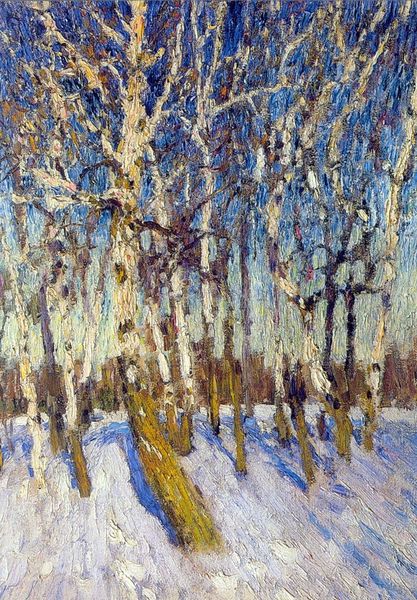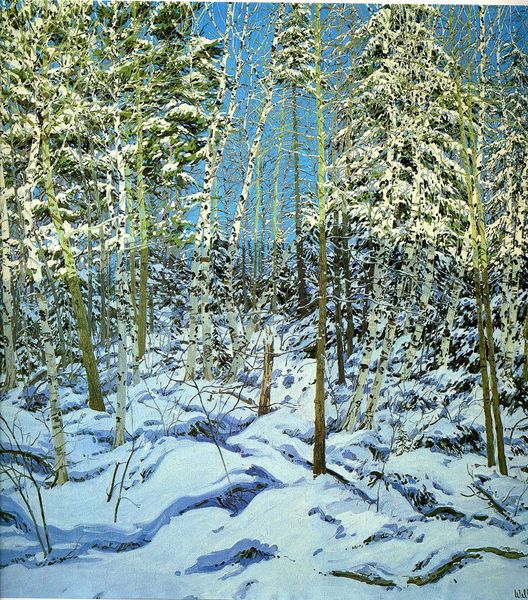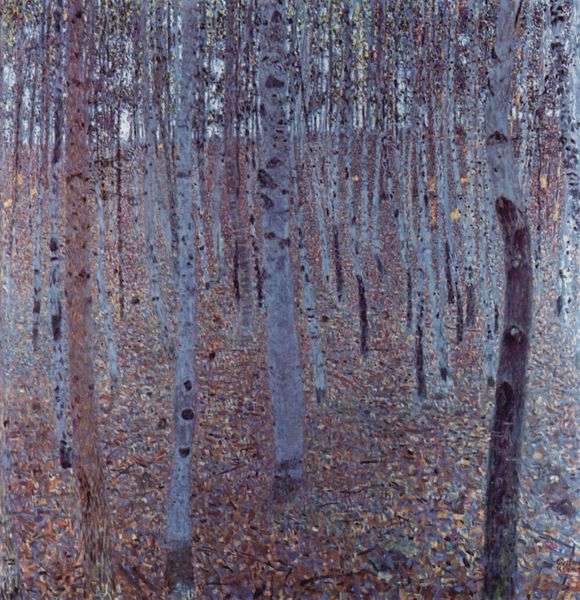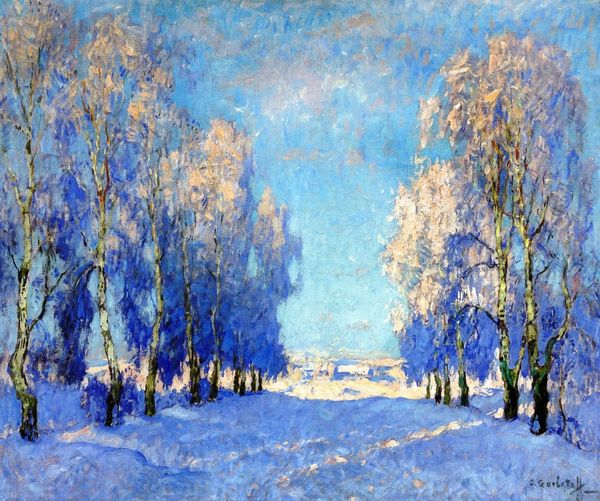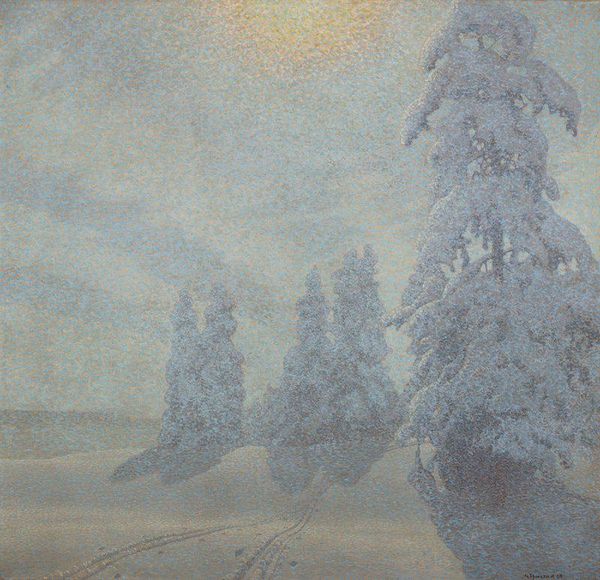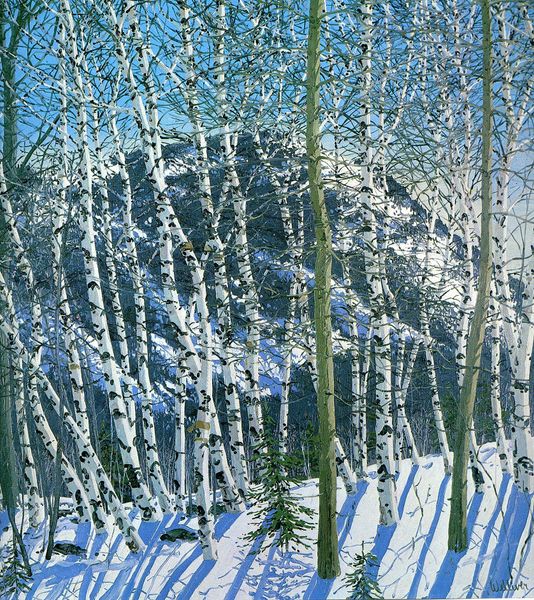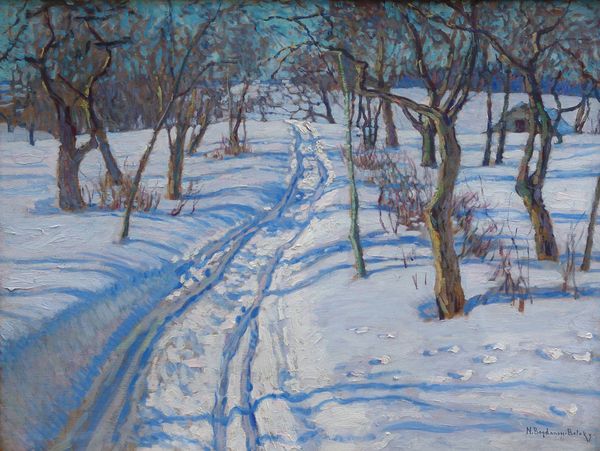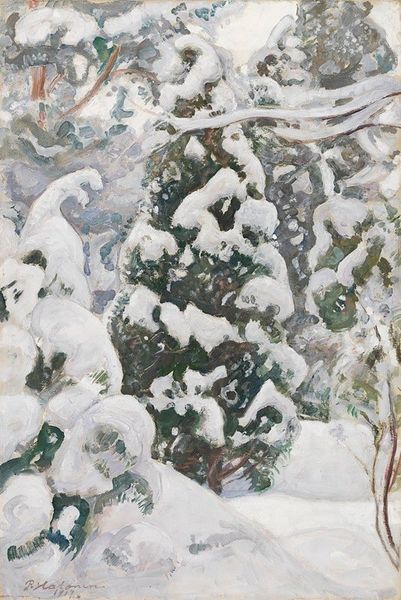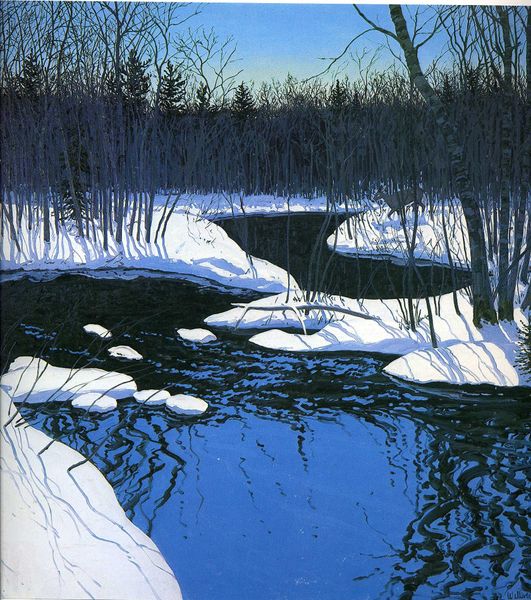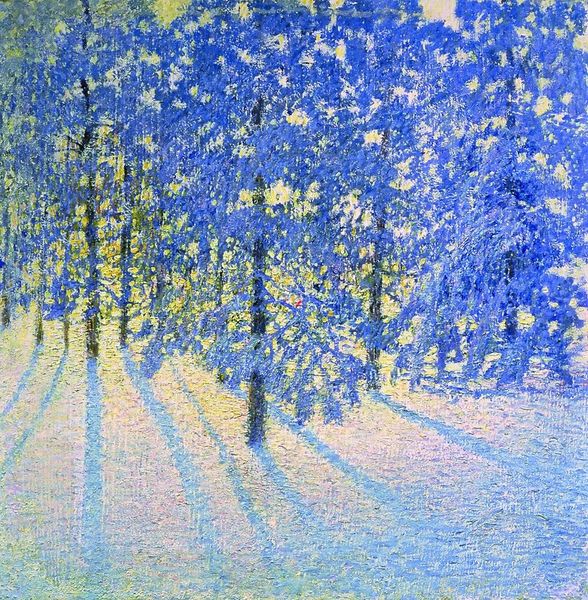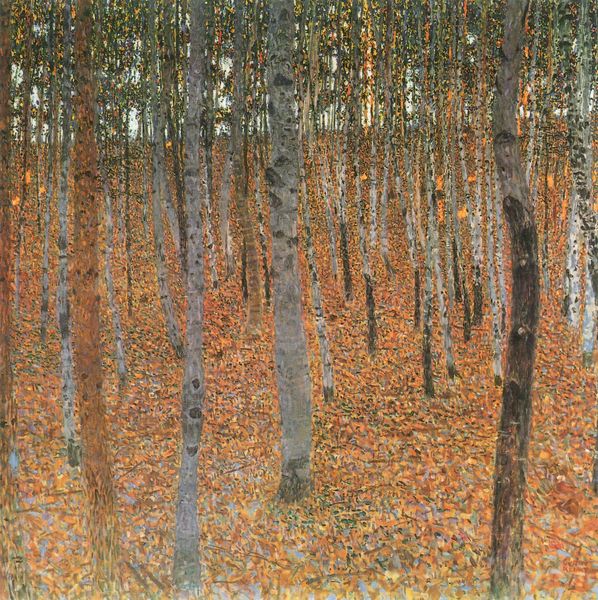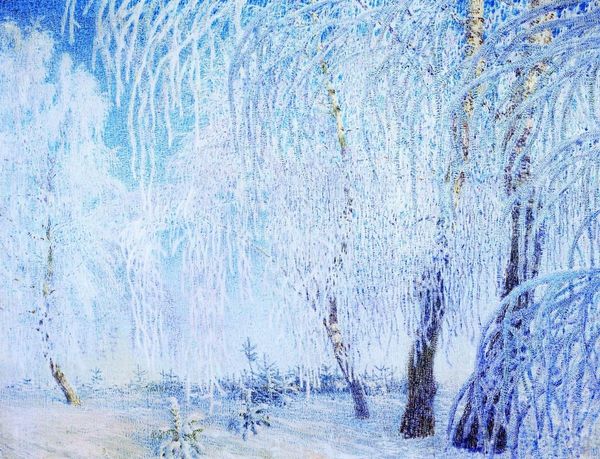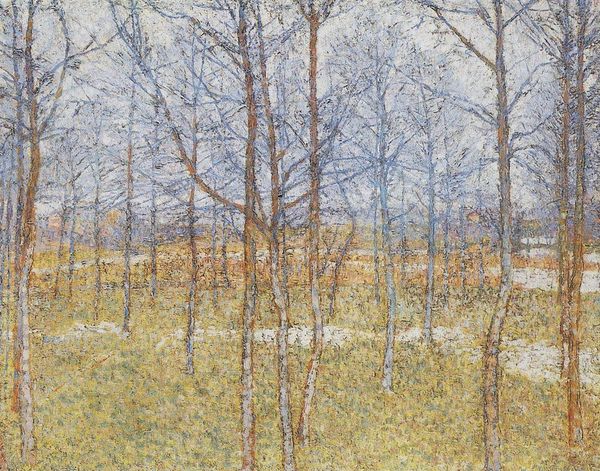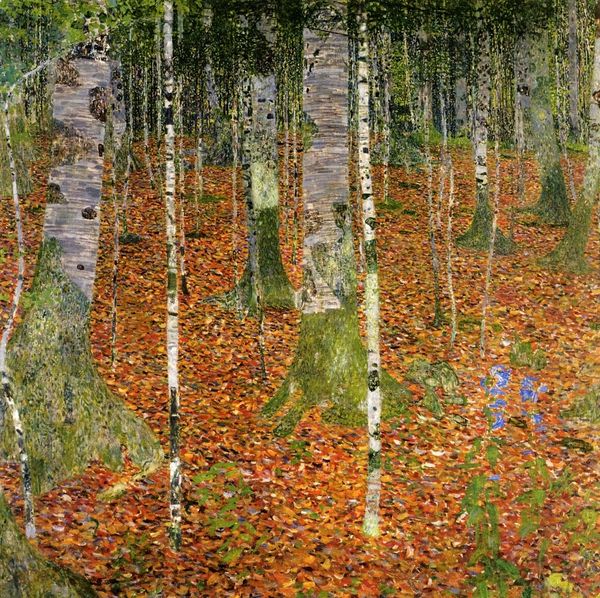
Copyright: Public domain US
Editor: Igor Grabar's "February," created in 1904 using tempera in a plein-air style, is a striking depiction of winter trees. The painting has this incredible feeling of cold light, but there is something optimistic about it too, I'm not sure what, maybe how the light filters through. How do you interpret this work? Curator: It's interesting that you pick up on both the cold and optimism! For me, the work resonates deeply with early 20th-century Russian anxieties about identity and belonging, specifically, in a time of massive social and political upheaval. Can we see this landscape as a symbol for the "Russian soul," stripped bare, but still beautiful and resilient, facing a future that’s as obscured as the horizon? Consider the birches themselves – often seen as symbols of Russia. Editor: I never thought about landscape that way. Are you saying that choosing this scene or landscape in Russia was a political or social statement, too? Curator: Absolutely. Especially within the context of the *peredvizhniki* movement's focus on depicting everyday life and the beauty of the Russian countryside, Grabar, while using an Impressionist style, still participates in this construction of national identity. What do you make of the fact that the snow isn't just white – there's blues, purples, pinks, all those subtle color variations? Editor: It feels like it makes the painting much more complex. Like a simple winter landscape isn't actually simple at all when you start to notice all of the different elements. Curator: Exactly! The perceived simplicity, especially within a rapidly industrializing and modernizing Russia, speaks to a yearning for an idealized, perhaps even romanticized, past. These paintings offer places of refuge, reflection, maybe even resistance, if we allow ourselves to interpret the landscape not as merely a scene, but as a canvas onto which national and cultural identity is projected. Editor: I see how viewing art through a broader cultural lens makes the entire artwork more engaging. I learned something new. Curator: Me too. Your point about optimism makes me think there might also be room for considering the hopes for social change imbedded in Grabar's choice of subject.
Comments
No comments
Be the first to comment and join the conversation on the ultimate creative platform.
